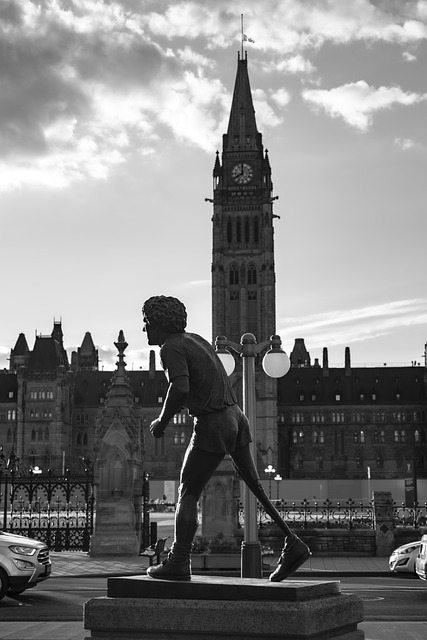The Revolutionary Possibilities of Virtue

A couple of years ago, I got wise to an old truth: private virtue had public effects.
This insight turned conventional wisdom upside down. Good character was more than an admirable quality. It could help bring justice to the abused and voiceless.
To be sure, extolling virtue is out of fashion. We are familiar with systematic and structural prescriptions for injustice. And some religions, including mine, Catholicism, view “structures of sin” as necessary to help the vulnerable.
That’s well and good. While Americans are divided and polarized, most endorse good public policy, laws, and enforcement are vital to civic health. After the pandemic broke out in March 2020, a writer at the libertarian Cato Institute, Andy Craig, endorsed sending a universal payment to Americans rather than bailing out corporations.
After virtue?
Yet few discuss the need for a virtuous citizenry anymore.
Nobody refers to conservative policy intellectuals as virtuecrats; they call them populists or, well, conservatives. This isn’t the 1990s when Bill Bennett’s The Book of Virtues was a best-selling book and a president, Bill Clinton, and a four-star general, Colin Powell, helped create a nonprofit to promote civic voluntarism.’
I don’t say virtue talk is dead. Some public intellectuals discuss the need for virtue, and they are worth mentioning.
Jennifer Frey, an assistant philosophy professor at the University of South Carolina, operates a semi-regular blog and podcast on virtue.
Candace Vogler, a professor of philosophy at the University of Chicago, led a 28-month research project into the meaning and purpose of self-transcendence, a concept similar to virtue in seeking the good beyond oneself and one’s friends and family. (I plan to write more about their work).
New York Times columnist David Brooks has written about virtue, in particular his 2015 book The Road to Character.
In journalism, citing three people makes a trend. In this case, it does not.
As these three intellectuals acknowledge, they operate outside the mainstream of American culture. Americans, Mr. Brooks said, lack the moral ecology to discuss terms such as sin and humility.
Why virtue isn’t for fuddy duddies
He may be right. Virtue sounds fuddy-duddy and faintly Victorian. In fact, it can be cutting edge and revolutionary.
A definition is in order. Virtue is a stable, firm habit to seek and do the good. That means it transcends ideology and self-interest. It allows a person to overcome the allures of money, pleasure, and honor in favor of the common good. As Dr. Vogler wrote,
Being entirely oriented to my own success, my own pleasures, my own comfort, my own prospects, is not a recipe for leading a good life. It does not become a recipe for leading a good life even if I extend the sphere of my primary concern to cover the pleasures, comfort, security and prospects of my friends and family. Finding meaning in my life, finding my life profoundly satisfying, putting my efforts to be a good person in their proper place—these things require being alive to participating in a good that goes beyond me and mine.
In the classical sense of virtue, a virtuous character isn’t a holy roller or self-righteous moralist; he or she has the four cardinal virtues:
Justice: giving each person his or her due.
Temperance: restraining one’s appetites and whims
Fortitude: withstanding difficulties in the face of adversity
Prudence: finding the means to act properly.
How a forgotten hero embodied the four cardinal virtues
Terry Fox, whose statue can be seen above, is an example. After losing a leg to cancer, he walked across Canada to raise money for research.
I mentioned this before, it but it bears repeating. Consider Congressman Ryan’s investigation of Jonestown, in 1977 and 1978.
Ryan acted justly toward Jim Jones. He praised him in public and negotiated the unsavory details of his followers’ reasons for leaving in private. And he was just toward Jones’ victims. He invited anyone who wanted to leave with him to leave.
Ryan received praise for his temperance from both of Jones’ lawyers.
Ryan showed fortitude in overcoming Jones’ many attempts to prevent him from entering Jonestown, not to mention a pressure-writing campaign from Peoples Temple supporters to not investigate Jonestown.
Ryan was prudent considering that nobody anticipated Jones would commit a black-swan event and that he had investigated alleged human rights abuses in South Vietnam and South Korea three years before.
Ryan acted virtuously not because of a policy or law. He did it because, in this investigation at least, he was a virtuous character.
Writers have minimized Ryan’s virtue. This is understandable given Jones’ subsequent act: He orchestrated a mass murder and -suicide. Nevertheless, Ryan deserves our admiration.
A public official outside of law enforcement actually held another public official to account for exploiting and abusing people, most of whom were Black. This almost never happens (here and here and here). On top of that, Ryan rescued 25 people directly and indirectly.
Conservative and liberal populists alike call for the privileged to be held accountable. What they don’t call for is developing virtuous leaders who can do so.
What does everybody else think?
– 30 –

Right on my man!